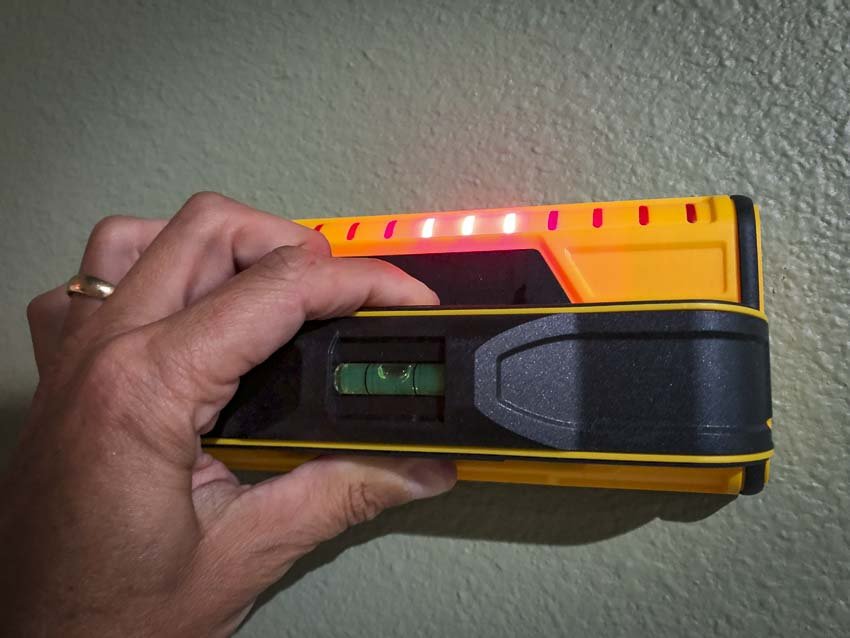
Aside from the joke about stud finders always pointing back at me, the question remains: Do stud finders work? Actually, yes they do…sort of. Here’s the thing—even the best stud finders require knowing how they operate. The key involves getting one that does what you specifically need it to do.
Surveying Reputable Stud Finder Brands
You also want to stay with reputable brands like Zircon, Franklin Sensors, Bosch, and others. Know your tool, and know the applications, then you’ll have a great chance of success. Even well-known brands like DeWalt often feel (to us) like they merely put their name on a generic stud finder. These tools still typically function well. They just don’t offer advanced features or anything above and beyond the norm. The Zircon MetalliScanner MT6 is one of our particular favorite advanced stud finders.
Our experience shows that most battery-operated types work fairly well to some extent. Some of this is a function of “you get what you pay for” since many low-cost stud finders do not have the penetrating power to accurately get though the wall materials to find the studs. There’s also the issue of not having the sensors needed to find things that are important to you—like electrical wires or metal studs or metal conduit.

Finding Live Circuits Behind Walls
We’ve found that owners of cinder block homes (in particular) really benefit from a stud finder that indicates if there are hidden electrical wires within the wall. Most magnet-type stud finders don’t work effectively since they reply on locating the fasteners (screws) used to secure the drywall. These can be very difficult to locate.
In addition, magnetic stud finders don’t necessarily help you if you have wiring run down the middle of a section of furring strips. Put a drill bit through the middle of live Romex and you won’t forget the experience…or the hassle!
Getting a Bead on Your Studs
Another really cool product is the Franklin ProSensor 710 Stud Finder which can locate multiple studs at the same time and uses an array of LEDs to indicate the position of a wood or steel stud behind the drywall. It’s only too bad we can’t have them design an inexpensive model to find underground wiring!
This stud finder gets a hearty thumbs up for its sheer convenience. When you can see the entire width of a stud (or two or three) it makes it that much easier to set your nail or screw marks. They also have the Franklin T6, a truncated version with less LEDs.
A Simpler Stud Finder
On the other end of the scale, simple often rules the day. That’s the case with the StudPop magnetic stud finders. These little beauties simply locate the screws or nails that hold the drywall to the stud. Since you can’t screw into air, they end up being very reliable.

Highly Advanced Wall Scanners
Still more impressive are sophisticated devices like the Bosch D-Tect 150 or the Makita DWD181 Wall Scanner which locate wood, electrical, ferrous, or non-ferrous metals, and now even plastic behind drywall or sheetrock. These devices go deeper than normal to really probe the depths of material and reveal what lies beneath.

For many applications, this proves critical to not making very expensive mistakes drilling or cutting.
So Yes, Stud Finders Do Work
In the end, you need a good stud finder. While the knuckle-knock test works a majority of the time on simple drywall, a good stud finder gives you more precision. It also saves your knuckles for more important tasks like gripping a hammer drill!
If you have any stud finder stories (good or bad) please let us know in the comments below. As always—thanks for reading!







